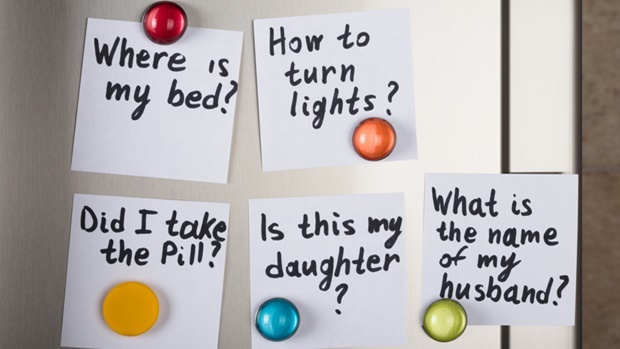Researchers report that an experimental drug called BAN2401 slowed mental decline by as much as 30% in Alzheimer's patients. It also appeared to clear away the amyloid protein plaques in the brain that have long been linked to the devastating illness.
"That said, these two studies indicate that amyloid remains an important therapeutic target to pursue in Alzheimer's disease," the Alzheimer's Association said in a statement.
Early intervention
The trial included 856 patients with either mild cognitive impairment (often a precursor to Alzheimer's) or mild Alzheimer's disease. The 161 participants who received the highest dose of the drug every two weeks for 18 months had much slower mental decline than the 245 patients who received a placebo, the Associated Press reported.
The highest dose of the drug also removed much of the Alzheimer's-associated plaque in the brains of patients, according to the findings presented by the drug's makers at the Alzheimer's Association's annual meeting in Chicago. It is thought that intervening very early in the disease process, long before dementia sets in, is the best path to a successful treatment.
The drug did not meet its stated statistical goals by the end of one year, making the trial a failure overall. However, gains in curbing cognitive decline were seen by 18 months, the researchers said in a news conference.
"On behalf of the millions living with Alzheimer's disease and other dementias now, and the millions more at risk, the Alzheimer's Association finds these results important to report and share with the scientific community," the association's statement said.
Overall, dementia experts said that because the trial was too small to provide conclusive evidence and used a new way to assess mental decline, the findings need to be confirmed with further research.
Even so, some said the results offered hope after decades of failed attempts. "We're cautiously optimistic," Maria Carrillo, chief science officer of the Alzheimer's Association, told the AP. "A 30% slowing of decline is something I would want my family member to have," and the drug's ability to clear brain plaques "looks pretty amazing", she added.
Needed as soon as possible
"That's a very hopeful outcome. It means we may be on the right track," Dr Stephen Salloway, neurology chief at Brown University, told the AP. Speaking to the New York Times, neurologist Dr Samuel Gandy said the 30% slowing of cognitive loss seen in the study might not be enough to make a difference in patients' everyday function.
Would such an effect mean the difference, for example, between allowing a patient to dress or feed themselves without the aid of a caregiver? That's not clear from the study, said Dr Gandy, who is associate director of the Mount Sinai Alzheimer's Disease Research Center in New York City.
In any case, even if further studies proved successful, bringing BAN2401 to market would still take years, although Eisai chief executive Ivan Cheung said that both his company and Biogen have submitted requests to meet with the US Food and Drug Administration to talk over steps needed for approval.
"It's a bit premature to talk about at this point, but our goal is to bring BAN2401 to patients and families as soon as possible," Cheung told the Times.
Fuente: www.health24.com
